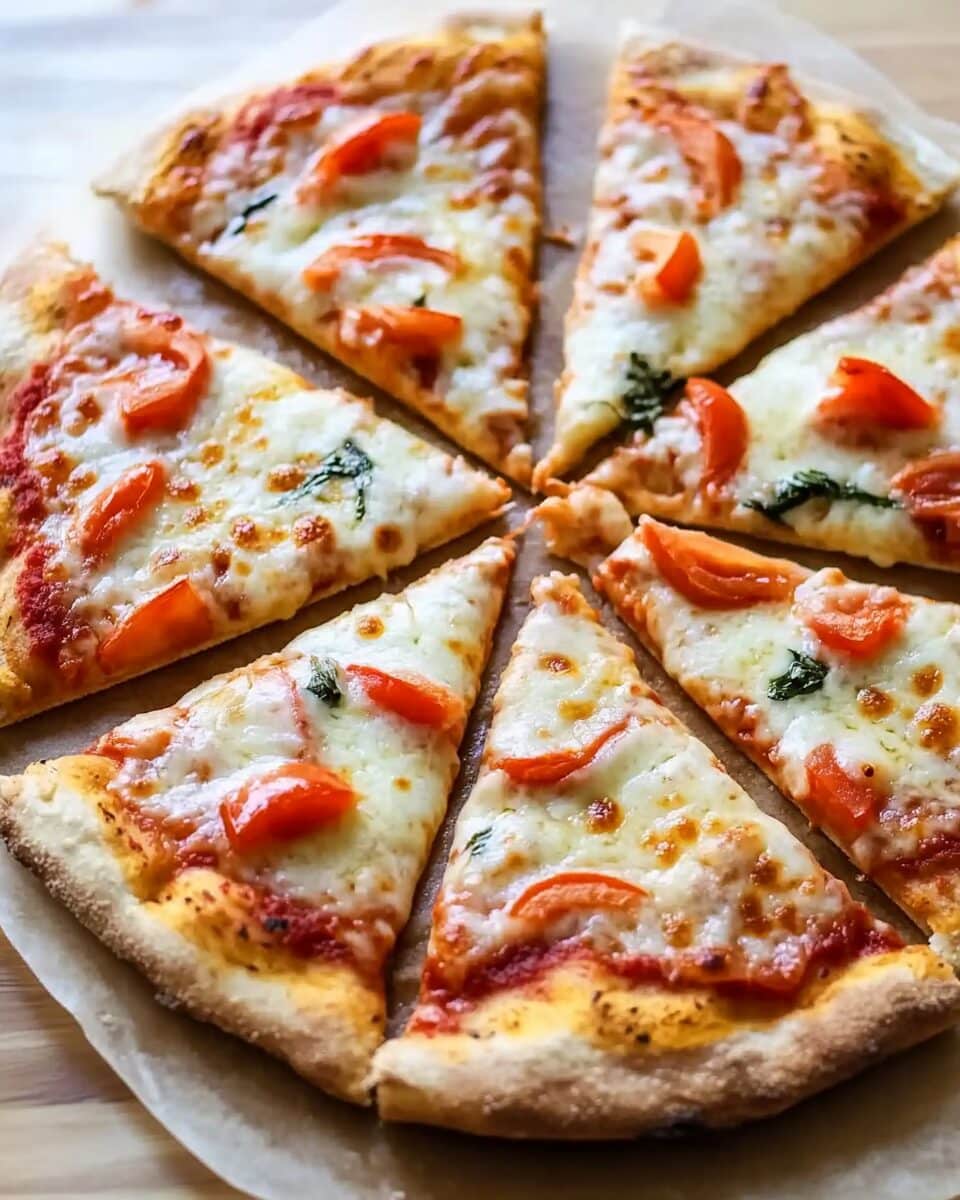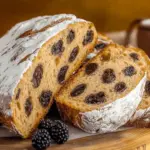What Makes Cottage Cheese Crust So Special
At first glance, using cottage cheese to make a pizza crust might sound unconventional, but it’s a surprisingly effective and delicious swap. Cottage cheese, often underrated in savory cooking, brings a creamy, tangy profile while offering a powerful punch of protein. When combined with eggs and cheese, it transforms into a golden-brown crust that has a pleasing bite and a sturdy foundation.
This crust isn’t just for dietary needs—it’s perfect for pizza lovers who crave something new. It eliminates the need for kneading, rising, or resting dough. You get a fast, gluten-free alternative that’s ready in under 30 minutes, making it ideal for weeknight dinners, solo meals, or feeding a hungry crowd on short notice.
Texture and Taste: Crispy, Cheesy, and Satisfying
One of the biggest surprises with cottage cheese crust pizza is the texture. Once baked, the crust develops a golden, crisp edge and a firm base—essential for supporting sauce, cheese, and toppings without becoming soggy. The cottage cheese blends seamlessly into the base, so you don’t get curds or graininess. Instead, it adds creaminess to the dough and locks in moisture while keeping the carb count low.
The flavor is subtly cheesy with a slight tang from the cottage cheese and Parmesan, making it a flavorful base even before adding toppings. The mozzarella ensures stretch and body, while the eggs act as a binder, giving the crust its structure.
Health Benefits: Protein-Packed and Low in Carbs
For those focused on nutrition, this crust is a game-changer. Unlike traditional pizza dough, which can be heavy in refined carbs and low in protein, this cottage cheese crust is:
-
High in Protein: With about 15 grams per serving (before toppings), it’s a filling option that supports muscle repair and satiety.
-
Low in Carbohydrates: Containing just 3–5 grams of carbs per slice (depending on portion and toppings), it fits well into low-carb, keto, and diabetic-friendly diets.
-
Gluten-Free: Naturally free of wheat, making it safe for those with gluten sensitivities or celiac disease.
-
Rich in Calcium: Thanks to the combination of cheeses, each slice contributes to your daily calcium needs for bone health.
If you’re trying to eat more mindfully without sacrificing your favorite meals, this recipe allows you to enjoy pizza without the carb crash or post-meal guilt.
Endlessly Customizable for Every Craving
The beauty of this recipe lies in its customizability. Once the crust is baked and golden, it becomes a blank canvas for your culinary creativity. You can keep it simple with tomato sauce and mozzarella, or get gourmet with pesto, goat cheese, roasted veggies, or spicy sausage.
Here are a few topping ideas to inspire your next pizza night:
-
Classic Margherita: Tomato sauce, fresh mozzarella, basil leaves, and a drizzle of olive oil.
-
Spicy Buffalo Chicken: Shredded rotisserie chicken, buffalo sauce, red onion, and blue cheese crumbles.
-
Veggie Supreme: Bell peppers, red onion, mushrooms, spinach, and black olives with a sprinkle of feta.
-
Mediterranean: Hummus or olive tapenade base, kalamata olives, artichokes, cherry tomatoes, and arugula.
-
BBQ Chicken: BBQ sauce, cooked chicken, red onions, cilantro, and mozzarella.
No matter your dietary preferences, you can tailor this crust to suit your needs—vegetarian, dairy-free (with vegan cheese alternatives), or even breakfast-style with eggs and spinach.
Perfect for Meal Prep and Leftovers
Another standout feature of this recipe is how well it holds up for leftovers. The crust retains its structure and texture even after refrigeration or reheating, unlike many cauliflower or alternative flour crusts that can become soggy. Simply reheat in a toaster oven, air fryer, or under the broiler for a quick and delicious second-day meal.
This makes it a great choice for meal prepping. You can bake the crust ahead of time, store it in the fridge for a couple of days, and add your toppings just before the second bake. It’s a handy solution for busy weekdays or when you want to prep healthy lunches in advance.
Tips for the Best Cottage Cheese Crust Pizza
While this recipe is simple and beginner-friendly, a few small tips can ensure the best results every time:
-
Use full-fat cottage cheese for the richest flavor and best binding. Low-fat varieties may be too watery and can impact texture.
-
Blend the cottage cheese and eggs until smooth to avoid any clumps in the crust.
-
Line your baking pan with parchment paper and spray it to prevent sticking and make cleanup easier.
-
Spread the batter thin and even for a crisper crust. About ¼ inch thickness is ideal.
-
Let the crust rest after the final bake before slicing—this helps it firm up and keeps the toppings intact.
Who Will Love This Recipe
This recipe appeals to a wide range of people, from those trying to cut back on refined carbs to home cooks who just want a quick, no-rise pizza dough that’s ready in minutes. It’s kid-approved, adult-loved, and fits into a variety of healthy eating plans including:
Whether you’re cooking for one or for the whole family, this cottage cheese crust makes it easy to bring everyone to the table—without compromising on taste or nutrition.
Conclusion
Cottage Cheese Crust Pizza is the kind of recipe that transforms how you think about healthy comfort food. It proves that you can enjoy your favorite indulgences without the bloat, heaviness, or guilt often associated with traditional pizza. With a crust that’s packed with protein, light on carbs, and incredibly versatile, it checks all the boxes for a feel-good, flavorful meal that’s both satisfying and smart.
If you’re looking to simplify dinner, boost your nutrition, or just shake up your pizza game, this recipe deserves a permanent spot in your rotation. One bite of that chewy, cheesy crust topped with your favorite ingredients, and you’ll forget all about takeout.






